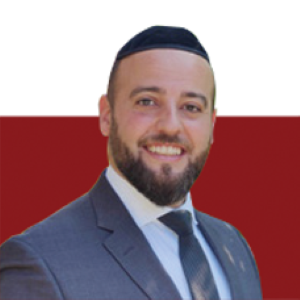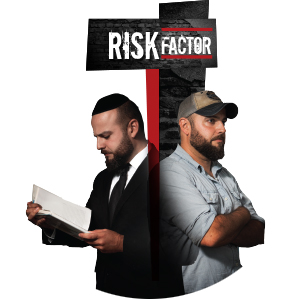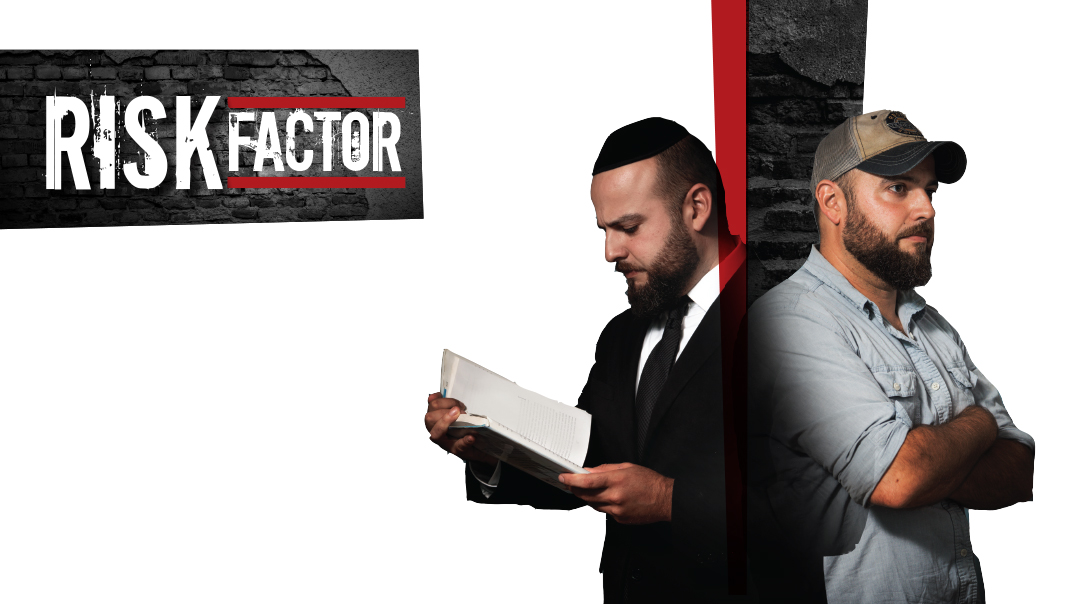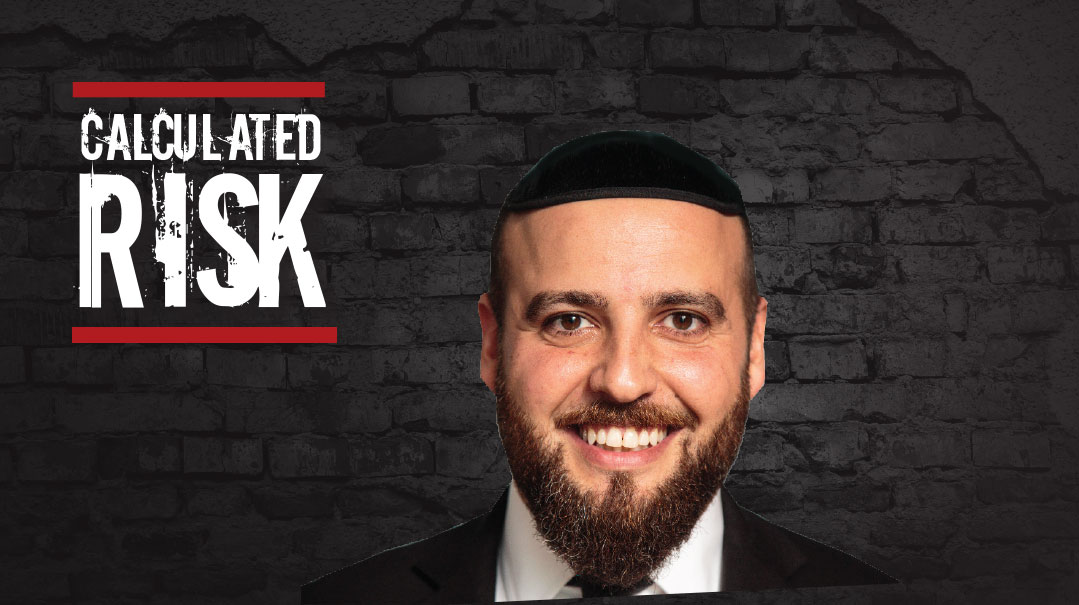Love Thy Neighbor

Yiddishkeit is precious, but in order to be a frum person, first you have to be a person
I 
I have kids. They play with my phone. Ergo, sometimes my phone ringer is a burp. I looked down at the belching device. A US number.
“Hello?”
“Hi, my name is Nechemya Neufield, and I’m from Los Angeles.”
“Hi, Nechemya Neufield from Los Angeles.”
“My son is a maggid shiur in Yeshiva Ahavas Torah,” he continued.
“You must be very proud.”
“Baruch Hashem, baruch Hashem,” he said. Then he said, “I have another son.”
Here it comes, I thought.
“He was just thrown out of yeshivah,” said Nechemya. “He says he wants to come home! Can you believe it?!” He was yelling, his voice filled with disbelief.
I narrowly missed getting run off the highway by a sheirut. “Yes… no… wait, I’m not totally clear what’s going on.”
“He’s not coming home and that’s final,” Nechemya declared.
There was silence. A few seconds passed.
“Hello! Nu? What do you say?”
“Hi, my name is Yossi Bensoussan, and I’m from Yerushalayim,” I said.
“Okay, but can you help me?”
“Help you with what, exactly?” I returned.
“My son’s rebbi said you could help!”
“That was nice of him to offer,” I said. “May I ask why your son was thrown out of yeshivah?”
There was a pause. “He was being mechallel Shabbos in the dorm, and they think he’s experimenting with drugs,” Nechemya said. He sounded slightly calmer.
“Has he had a problem with drugs in the past?”
“Yes… and with Shabbos.”
A lot of people couple issues together like this. “My son does drugs, he drinks, he doesn’t put on tefillin, or even keep Shabbos.” Each of these issues needs to be addressed, but there’s a hierarchy. Yiddishkeit is precious, but in order to be a frum person, first you have to be a person. Self-destructive behaviors must be addressed before you can address religious issues.
“Have your son call me,” I told Nechemya. I ended the call and dodged another sheirut before exiting the highway.
Nechemya’s son, Shmuli, did call. Later that evening I sat waiting in a café on Rechov Paran. I saw Shmuli before he saw me, and I knew immediately that this conversation wasn’t going to go well: Shmuli was clearly under the influence, and our conversation, no matter how agreeable or enjoyable, was unlikely to be very productive.
Still, I tried. But no amount of coffee was going to bring Shmuli back down to earth before we were done talking. I tried to guide the conversation in the direction of getting help or at least admitting he had a problem, but Shmuli evaded or just ignored anything I said. He preferred to discuss politics, sports, or even the weather. Before leaving, I invited him for Shabbos. He said he would love to come, and we left it that.
My phone burped again a little while later. “It didn’t work!” Nechemya yelled.
“What didn’t work?”
“He’s coming home!” Nechemya complained. “I don’t want him home. You were supposed to fix him!”
Oh, he wanted a miracle. This is another common mistake that “Nechemyas” make: rabbis, drug counselors, and therapists, no matter how good they are at what they do, are not miracle workers. We don’t brainwash people. We don’t trick people. If a person refuses to get help, then all we can do — all anyone can do — is stay with them until they want it. You can communicate your disappointment (in an appropriate way), but you just can’t force a person to change.
It was nearly a year before I saw Shmuli again. I was walking up to the Kosel when someone tapped me on the shoulder. I turned around, there was a yeshivah boy standing there, just smiling at me.
“No thank you, I’m already frum,” I said.
“Very funny. Don’t you remember me?” he asked.
“Sure!” I exclaimed.
“Really?”
I shrugged apologetically. “No, not really. I’m sorry.”
“I’m Shmuli,” he said.
I was still drawing a blank.
“From Los Angeles!”
It clicked. “Shmuli, you look great!” I had to ask: “What happened?”
He told me the most boring success story, which is also the only success story: He went to therapy, went to rehab, worked through his resentments, got clean, and recovered.
But something was missing, it didn’t add up. What had finally prompted him to go to therapy in the first place?
“It was a slow process,” Shmuli said, “but it started with my next-door neighbor. After I got kicked out of yeshivah, I snuck out of my house one Friday night to go out with some friends. They were waiting for me in a car down the block, and I had to cut through my neighbor’s yard to get there.
“As I was running across the grass someone grabbed me. It was my next-door neighbor — my father’s best friend. I was busted. He started yelling at me, what are you doing back here? I didn’t know what to tell him. We just stood there awkwardly for a minute while he looked me up and down, taking in the phone in my hand and the jeans I was wearing. He knew what I was up to. Finally, he told me to follow him and started walking in the direction of my house. I was just begging him not to tell my father. He kept walking but instead of going to my house, he walked me into his house. He went into the kitchen and started packing up all the leftovers from the Shabbos seudah. Then he hands me the bag and says, ‘Shmuli, I can’t stop you from leaving tonight, and I don’t know how to convince you that people love you, believe in you, and want what is best for you. But at least I can make sure that you don’t go out there hungry. And Shmuli, if ever you need anything, I’m here for you.’”
Shmuli shifted his gaze over my shoulder toward the Kosel. “I couldn’t get that encounter out of my mind. This man genuinely cared about me. He kept my secret, and that made me trust him enough to confide in him when I was ready. When he eventually suggested therapy, I listened to him.”
Shmuli’s father had called me for help, but his neighbor knew something he didn’t: You don’t need a degree or training to be there for a kid or his parents through hard times. There is no wrong way to listen to someone talk to you.
And Shmuli’s neighbor knew something else: If it takes a village to raise a child, then when the child goes off the derech, the village is responsible to reach out to him. Shmuli’s neighbor didn’t say it’s the parents’ responsibility or the school’s responsibility. He saw it as his responsibility.
Just like it’s my responsibility; just like it’s yours.
Identifying details have been changed to protect the privacy of patients, their families, and all other parties.
Rabbi Yossi Bensoussan serves as mashgiach ruchani at Yeshiva High School of Cleveland. He is a Certified Alcohol and Substance Abuse Counselor (CASAC) who currently maintains a private practice, and does motivational speaking and community education on addiction all over the US and Israel.
Originally featured in Mishpacha, Issue 783.
Oops! We could not locate your form.









